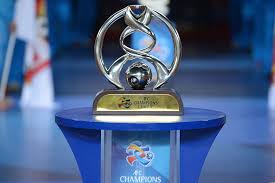February 19 – In a remarkable assault on the hand that feeds them, players union Fifpro has called the Asian Champions League ‘unsustainable’, calling for greater collaboration with the Asian Football Confederation.
In a report, produced in partnership with sporting intelligence agency Twenty First Group and published on Monday, Fifpro said that the average quality of teams in the Champions League is inferior to the top domestic divisions in Japan, South Korea and Saudi Arabia and accused football officials of adopting “a top-down approach that excludes the voices of players and clubs from decision-making”.
Fifpro repeatedly slammed the competition, with regional head Takuya Yamazaki saying the competition’s “merits do not outweigh the drawbacks for most players and clubs”.
The report said that “for clubs, the economics of the competition do not stack up. Prize money is heavily weighted to the finalists, and travel subsidies do not cover the real costs for away teams. Meanwhile, host clubs are forced to cover extensive costs to accommodate AFC officials and the away team. Clubs that provided feedback to this report expressed frustration at the AFC’s ‘clean stadium’ requirements, which one club estimated cost $50k per match. Clubs do retain their own ticket revenues, but attendances for the ACL group stage are on average 26% lower than domestic league fixtures in the same venues.”
For the 2023-23 edition, around $15 million was on offer in the AFC Champions League, far less than the prize money on offer in equivalent competitions in Europe and South America.
With $18 million, even the CAF Champions League’s prize money exceeded the prize money of the Asian Champions League. Melbourne and Sydney FC were among the clubs who complained that the competition does not bring increased commercial opportunities and that some of the commercial restrictions place on the clubs by AFC are burdensome.
Yamazaki added: “However, this does not mean that the future of football in Asia is bleak. On the contrary, we believe that this economically significant region can lead a discussion for truly sustainable competition formats.”
The report also said that “little benefit” to playing in the competition and that players suffer from the workload and travel demands, with 3670 kilometres as the average travel distance in the group stages in 2022 according to the report which goes on to explain: “Only half of the players surveyed said they received any kind of remuneration associated with the ACL. Meanwhile, the demands of the competition posed a significant risk to player wellbeing. It caused players to spend more time in the ‘critical zone’ of back-to back matches, and 72% of players said they felt at heightened risk of injury due to the workload and travel requirements.”
Fifpro recommends the “AFC establishes a genuine partnership with players, clubs, and leagues to ensure that the competition delivers for all parties.”
The AFC however has already taken steps to reorgan ise its premier club competition.
It has divided the confederation into an East and West Zone for recent editions of the Champions League, and from the 2024-25 season onwards, the Champions League will be reformatted with the latter stages of the tournament due to be played in a centralised hub with increased prize money for the finalists.
The Fifpro report also fails to take into account that the ACL is the pathway to the Club World Cup, which in itself will increase the value of the competition and the financial opportunities for clubs.
Contact the writer of this story at moc.l1745696429labto1745696429ofdlr1745696429owedi1745696429sni@i1745696429tnuk.1745696429ardni1745696429mas1745696429


